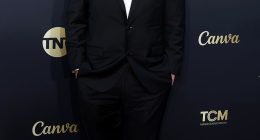
Hollywood’s two biggest superhero movies of late 2022 — Disney’s Black Panther: Wakanda Forever and Warner Bros.’ Dwayne Johnson tentpole Black Adam — are expected to be blocked from release in China, as Beijing regulators continue to crack down on U.S. access to the world’s second-largest theatrical market.
There is less on the line for Hollywood in China than there used to be, thanks to the country’s steady tightening of censorship control and nearly three years of strict Covid-zero policies, but regulators’ consistent snubbing of top-tier superhero titles is still costing the studios tens of millions of lost potential revenue.
The first Black Panther film earned $105 million in China in 2018, while Dwayne Johnson’s movies — such as, Skyscraper ($98 million in China) of Hobbs & Shaw ($201 million) — have tended to do big business in the country.
Beijing regulators seldom publicly announce or explain their decisions when denying a foreign movie permission to screen in local theaters, forcing studios and local fans alike to wait, speculate and hope. But several sources working in the Chinese industry tell The Hollywood Reporter that both Black Panther 2 and Black Adam are believed to have little chance of winning approval at this stage.
Black Panther 2‘s denial, although tough to swallow for Disney and China’s legions of superhero fans, comes as little surprise given the recent track record of Marvel movies in the Middle Kingdom. Once Hollywood’s most bankable franchise in the country, by far — Avengers: Endgame earned $629 million there — beginning with Black Widow in 2020, the last half dozen Marvel titles have failed to earn permission to screen in China. Many in the Beijing film industry have come to believe that a de facto ban on Marvel product has been instituted, with no end in sight. Others have formulated detailed theories for why each movie inadvertently ran afoul of Chinese authorities — for Shang-Chi and the Legend of the Ten Rings (2021) and Eternals (2021) it was Simu Liu and Chloe Zhao’s years-old interview comments in which they seemed to disparage China; for Spider-Man: No Way Home it was the prominent display of the Statue of Liberty — a too potent symbol of American political values.
With Black Panther 2, the same theory that was applied over the summer to Marvel’s Thor: Love and Thunder and Pixar’s Lightyear is again in circulation: Censors are believed to have rejected the film due to the brief depiction of openly gay characters — in this case, the Wakandan warrior Aneka (played by Michaela Coel) and the Dora bodyguard Ayo (Florence Kasumba), who are shown to be in a relationship.
In the past, Hollywood studios have been known to cut queer characters from their films to appease China’s censors — and reaped millions more in ticket revenue in the process. Before its takeover by Disney, 20th Century Fox shaved all mentions of Freddie Mercury’s homosexuality from Bohemian Rhapsody in order to secure a China outing, and Warner Bros. cut dialogue referring to a gay relationship from Fantastic Beasts: The Secrets of Dumbledore just this year.
Disney, however, recently has taken the stance that it doesn’t remove gay content to appease censors in international territories. The studio refused to trim a “gay moment” from the live-action Beauty and the Beast in 2017 when Malaysian content regulators objected, and it stood firm on Lightyear in the various markets where the movie was blocked, including Saudi Arabia and China.
Wakanda Forever will probably do just fine at the global box office without China, as early tracking suggests a domestic opening of $175 million or more. But D.C.’s Black Adam could have used a box-office boost. The film has earned $321 million globally, but cost almost $200 million to make, before marketing. And previous Johnson action tentpoles, including Hobbs & Shaw (2019), Skyscraper (2018) and Rampage (2018), earned significantly more in China than they did stateside.
Warner Bros and D.C.’s The Batman was the only U.S. superhero title to be released in China in the last three years. Largely owing to its dark nature, the film topped out at $25.3 million — on the low end for the genre. But the fact that a D.C. title had been released in the current climate led many to believe that Black Adam might have a path to the Chinese multiple.
An executive at a major Chinese movie theater chain tells THR, however, that their company has “stopped hoping” that Black Adam will score a local release date (the film opened in the U.S. on Oct. 21; traditionally, China approves foreign releases four to eight weeks in advance). The recent dearth of U.S. tentpole product on Chinese screens has arguably hurt local cinema chains the most. As of Monday, total ticket sales in China for 2022 were down 35 percent compared to 2021, according to data from Artisan Gateway.
Neither Disney nor Warner Bros. responded to requests for comment.
The leading theory for Black Adam‘s ban is the presence in the film of Pierce Brosnan as the heroic character Kent Nelson/Doctor Fate. Roughly two years ago, Brosnan posted a 19-year-old photo of his family posing with the Dalai Lama, while offering his congratulations to the spiritual leader on his 85th birthday.
The Dalai Lama is viewed by Beijing as a dangerous separatist and entertainment figures ranging from Lady Gaga to Richard Gere and Keanu Reeves have seen their work censored in China over past statements or gestures of support for the Tibetan leader.
Read More: World News | Entertainment News | Celeb News
Hollywood





